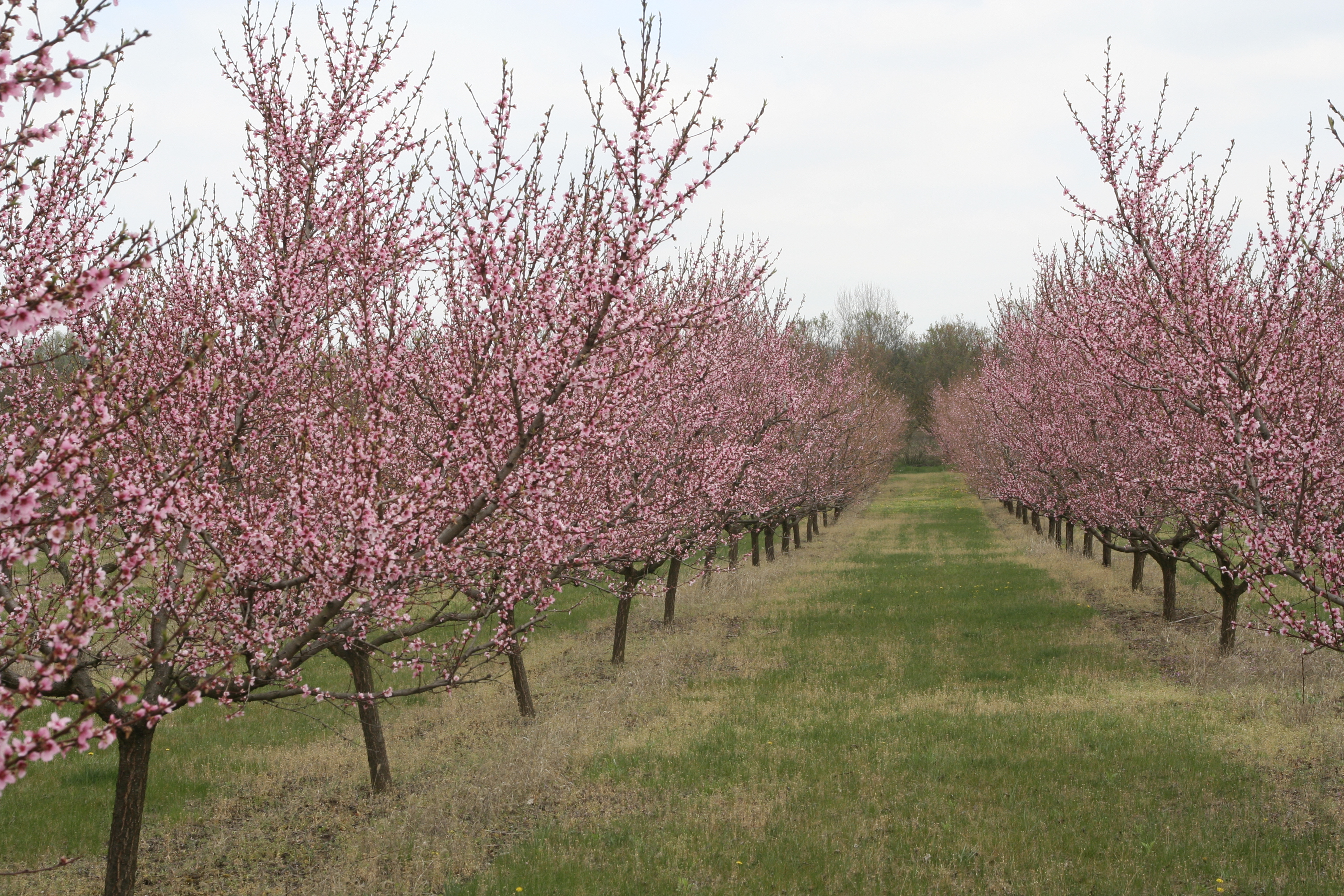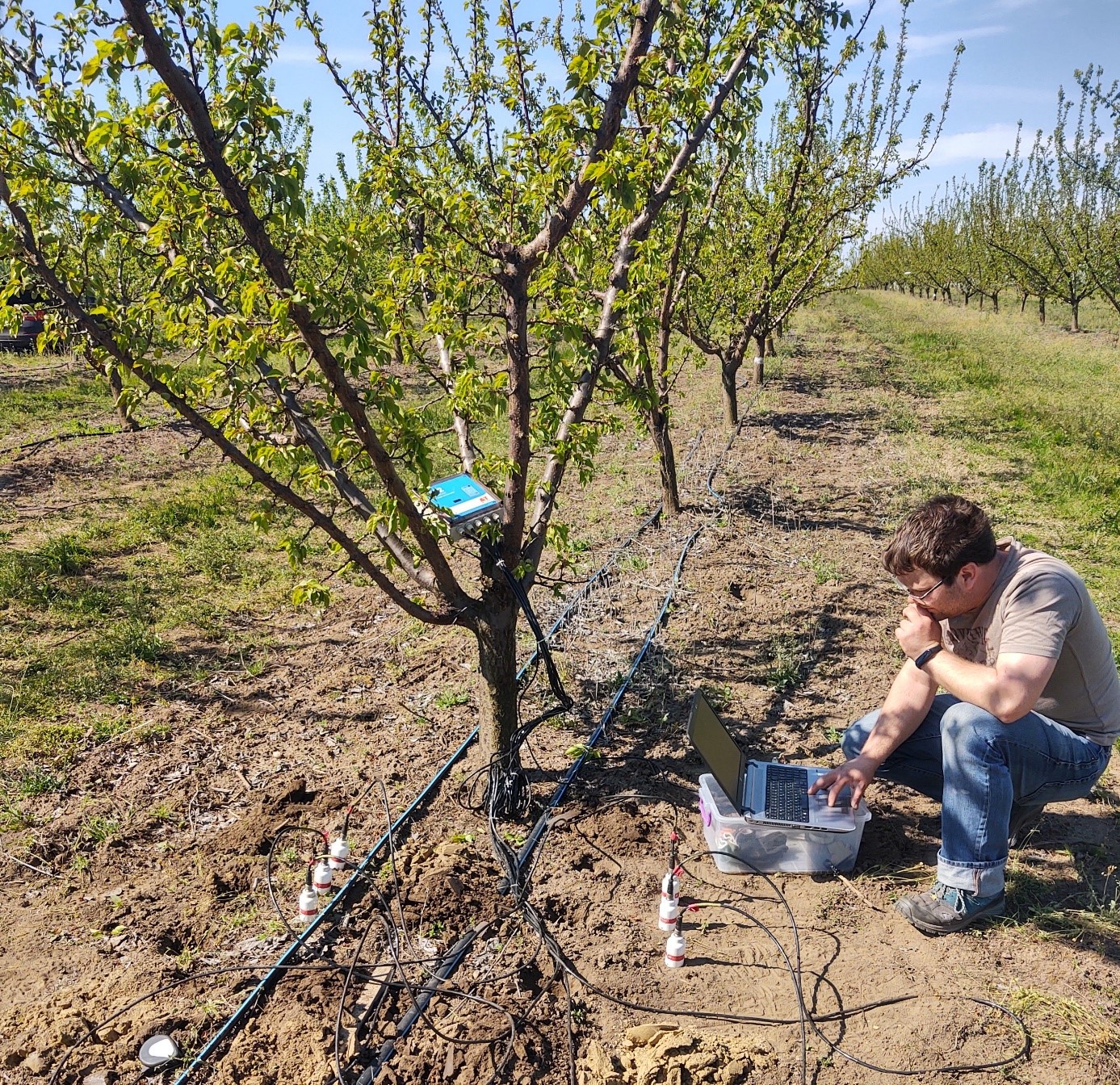Introduction - Institute of Horticultural Sciences
Institute of Horticultural Sciences
The Institute of Horticultural Sciences provides teaching, research and high-level professional service work in three areas: fruit growing, vegetable and mushroom growing, and medicinal and aromatic plants. As Hungary's largest horticultural education and research unit employing around 100 people, including 25 employees with scientific qualifications, our primary goal is to help domestic producers, train professionals with up-to-date knowledge, implement research programs that are also useful in practice, and provide direct professional services and consulting.
Of course, in addition to this, we are also happy to welcome students from abroad who wish to participate in bachelor's, master's or doctoral training, trying to provide them with modern, internationally competitive knowledge and practical experience. The teaching of the higher education courses managed by our Institute takes place on four campuses, the Buda Campus, the Szent István Campus in Gödöllő, the Georgikon Campus in Keszthely and the Károly Róbert Campus in Gyöngyös.
In addition, we maintain a network of a significant rural research station, which carries out sectoral professional and research tasks in the field of fruit growing (Cegléd, Érd, Fertőd, Nagymaros) and vegetable growing (Kalocsa, Szeged), and also serves as a demonstration and practical place supporting education.
Our institute has highly experienced staff who teach in both Hungarian and English at all training levels, and many of them can demonstrate serious domestic and international professional connections and recognition.
In our network of research stations, we employ specialists who deal with the practical tasks of production on a daily basis, who, in constant contact with domestic producers, have direct knowledge of the domestic challenges of the horticulture sector and are able to pass on emerging problems that need to be solved to our researchers.
The Institute of Horticultural Sciences is one of MATE's units with the lowest average age, 50% of our employees are under 40 years old. This guarantees that students, producers or researchers from partner institutions who come into contact with us will meet a dynamic team interested in solving problems.

Educational activity
The Institute of Horticultural Sciences conducts educational activities at all training levels. It administers the bachelor's degree in horticultural engineering (BSc), the master's degree in horticultural engineering (MSc), the specialist further training in herbal knowledge and use, as well as the higher education vocational training in medicinal plants and herbs. The courses start regularly and flexibly, both during the day and by correspondence. In addition, our colleagues teach you in the courses of eight other majors, among others, in the master's degree in plant medicine, as well as in the basic degree in agricultural engineering and further training in irrigation and agricultural water management.
We offer students ten specializations in the undergraduate program and five specializations in the master's program, which makes it easier for them to delve into the topic closest to their interests and prepare their thesis. Within the framework of individual talent management, we motivate the work of academic students.
Education on the Buda Campus in both our basic and master's programs is also conducted in English, where very diverse and active student groups have been participating for years. All campuses are connected to the education, where the students participate in the agrotechnical work of the horticultural species, and many of them continue their theses and diploma work experiments here. These areas, as well as the departments of our research institutes, also serve as the arena for mandatory professional internships, but in addition, the range of corporate collaborations where our students can also apply for internships is very colorful. An increasing number of foreign students visit our courses on mobility, as part of short-term scholarship programs. It should be noted that the teaching of the MSc in Horticultural Engineering has been taking place within the framework of a dual degree for about 15 years.
The Doctoral School of Horticultural Sciences is also directly connected to the scope of the Institute's activities. In addition, our employees participate in the work of the Doctoral School of Plant Sciences, whose school head, one of its staff members and several supervisors are also employees of our Institute. Our doctoral programs attract more and more foreign students.
The curriculum development activity of our employees is also manifested in publications that are considered basic textbooks and basic works in horticultural disciplines, which are also regularly used at partner universities. The teaching methodology has also developed a lot in the past period, all our courses are available online and digital connections are also available to help student relationships. During the development of the teaching materials, we also take into account the needs of the user sphere, incorporating them into the education.
Research activity
The institute is the largest horticultural research center in our country. Our strategic goal is to maintain this research position and cover all areas of horticulture. Scientific work ranges from basic research to applied research that produces results that can be used in practice.
The employees of the Institute of Horticultural Sciences carry out research activities on almost the entire spectrum of the field, including variety production, gene preservation, experiments related to the development of cultivation technology, as well as the examination of content values that are particularly important for consumers and the detection of the factors that determine them. Our priority research area is the promotion of adaptation to climate changes, including the development of precision irrigation techniques.
In the case of both fruit and vegetable plants, our breeding programs are extremely successful, from which not only the dominant domestic but also internationally successful varieties emerged. Currently, our group of breeders of cherries, apricots, walnuts, Mako-type onions, industrial tomatoes and hot peppers is most active.
In terms of medicinal plant research, the institute's department can boast of recognized outstanding results and is by far the most important domestic research base in the field of plants. The most important topics of his research in recent years can be grouped around the topics of exploring the intraspecific diversity of medicinal and aromatic plants, breeding and variety maintenance work, and optimizing drug quality. The study of the chemical diversity of medicinal plant taxa and populations, chemotaxonomy, and breed breeding based on this can show significant results: more than 20 plant species, including especially poppy, marjoram (Hungaricum), lavender, mint, chamomile, and fennel varieties are just a few examples of on the part of producers for research results that are also useful in practice. In recent years, the breeding activity has also been supported by the Institutional Excellence projects. Various agrotechnical innovations (e.g. sowing time, cultivation area, water supply, chemical weed control, optimization of harvesting and drying) take place in the framework of corporate collaborations.
The main activity of the Institute is horticultural gene conservation, in the framework of which our staff manage 8 collections registered by the National Institute of Natural Resources and Life Sciences. In total, there are more than 2,000 items of vegetables, more than 5,000 items of fruit and about 700 varieties and varieties of herbs. In addition to preservation, an important part of gene bank work is also the detailed examination of items and their inclusion in breeding programs.

Domestic and international relations
The Institute of Horticulture considers its task above all to serve domestic producers, so our most important partners are Hungarian horticultural enterprises, as well as the interprofessional and social organizations (FruitVeB Interprofessional Organization, or NAK). Among them, our key partners are Oleum2000 Kft. working in the field of fruit growing, Bio-Fungi Kft., Pilze-Nagy Kft. and Sylvan Hungária ZRt. in the field of mushroom growing, ZKI ZRt., Árpád-Agrár ZRt., Rijk. Zwaan Kft., Unilever and Monsanto Hungária Kft., as well as our outsourced department operates at Univer Product Zrt. and Tungsram Zrt. The professional collaborations include solving acute cultivation problems on the one hand, and longer-term collaborations on the other hand (e.g. variety comparison, variety candidate testing, cultivation technology development) are covered. Through our professional relationships, our students get to know modern horticultural plants in the form of professional internships. Our institute's professional relationships allow us to carry out not only tender projects, but also commission contracts for specific research tasks, which has a significant tradition in our institute.
Our employees participate in countless international projects. We have a daily working relationship with the Faculty of Biotechnology of the University of Ljubljana, the herbal research department of the Bayerische Forschungsansalt für Landwirtschaft, the Faculty of Horticulture of the Mendel University (Czech Republic), where we have several Erasmus and Ceepus connections, with joint publications. The University of Bologna in Italy is one of the world's leading higher education institutions in the field of horticultural sciences, with which we also maintain daily contact. The German Gesellschaft für angewandte Mykologie und Umweltstudien also financially supported our operation, and the professional relationship revolves around the organization of mushroom research. Carthage University (Tunisia), Auburn University (Alabama, USA), Agricultural Research Center (ARC - Dokki, Giza,)
In addition, we have several international collaborations that are specifically aimed at utilizing the results achieved by our researchers. Among them, we should mention the German Artevos GmbH, which distributes several of our fruit varieties internationally and has also concluded a long-term breeding agreement with us for the production of new cherry variety candidates.
Our instructors are members and officials of several domestic and international professional organizations, including the HTA Horticulture Committee, the Bólyai College of the MTA Agricultural College, the management of the Medicinal Plant Department of the Hungarian Pharmaceutical Society, the MAB Agricultural Science Committee. We also participate in the work of the Essential Oil Committee of the Hungarian Standards Board and the Hungaricum Committee of the Ministry of Agriculture. We represent ourselves internationally among the members of the International Council of Medicinal and Aromatic Plants, the IUCN Medicinal Plant Specialist Group, International Society for Mushroom Science - ISMS) or board members (World Society for Mushroom Biology and Mushroom Products - WSMBMP, but upon request we participated in e.g. also in the EFSA expert committee.

